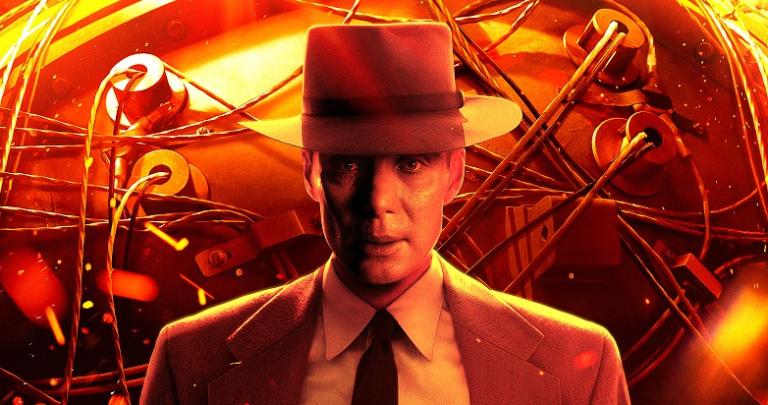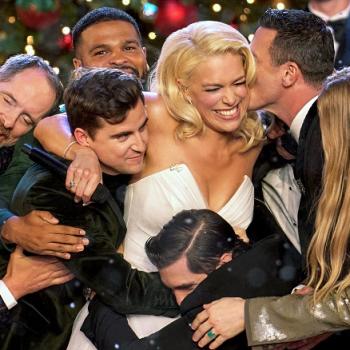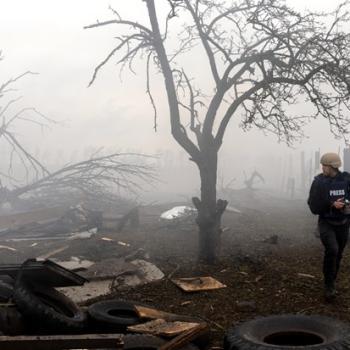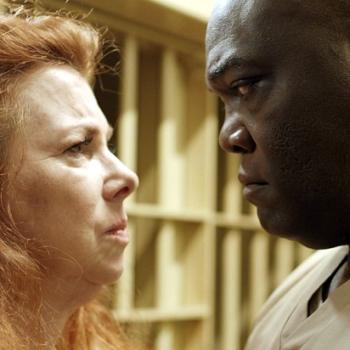
I wouldn’t be surprised if Oppenheimer winds up as Best Picture when the Academy Awards roll around. It’s an impressive piece of cinema, but it also reminds us of something too often forgotten — putting people on pedestals is as bad for them as it is for us.
Who Was Oppenheimer?
J. Robert Oppenheimer (played to perfection by Cillian Murphy) was lionized just after World War II as “The Father of the Atomic Bomb.” But, he was also a husband, a father and a brother. He had affairs, before and during his marriage (which began while his wife was married to someone else).
He could be arrogant. He could be charming. He flirted with Communism.
He was, as we say in social media … complicated.
From the Atomic Heritage Foundation:
Oppenheimer was a captivating and charismatic figure that could easily draw people’s attention and interest. “We were all completely under his spell,” said physicist Philip Morrison, who would follow him to Los Alamos, NM “He was enormously impressive. There was no one like him.”
Isidor I. Rabi remembered Oppenheimer’s mutable and dynamic personality: “He had this mystic streak that could sometimes be very foolish. Sometimes he made foolish judgments and sometimes he just liked to tell tall stories… When he was riding high he could be very arrogant. When things went against him he could play victim. He was a most remarkable fellow.”‘
“You shall not have other gods beside me.”
The film reminded me of a common failing of humankind — addressed, in fact, in the First Commandment above — turning things and people that are not God into gods. It might be a monarch, war leader, spiritual leader, musician, actor, athlete, politician or even, especially in recent decades, a scientist.
Just because someone is brilliant or successful or talented or in a position of authority doesn’t necessarily make him or her a great human being. Actually, one can be of ordinary intelligence, poor and possessing no spectacular talents and yet be a saintly individual.
I’ve always thought that putting people on pedestals is just as dehumanizing as treating them as lesser beings. Our flaws are essential to our nature. As poet Alexander Pope said, “To err is human, to forgive, divine.”
To sit through the three hours of Oppenheimer — which, I must say, rocket along like the runway train in Mission: Impossible — Dead Reckoning Part One (instead of Barbenheimer, I did second doses of MissionHeimer this past weekend) — is to get an object lesson in human frailty.
How Oppenheimer Deals With Its Subject and Those Around Him
I listed Oppenheimer’s flaws above. His onetime champion and eventual foe, self-made financier Lewis Strauss (a stellar Robert Downey Jr.), is portrayed as being petty and vindictive toward the man he once supported (apparently, it’s true). Neither man is a paragon.
The script, by director Christopher Nolan, addresses the positives and negatives surrounding Oppenheimer, the development of the atomic bomb at Los Alamos, New Mexico, and what happened to the scientist in the years after. It leans in favor of Oppenheimer (and perhaps also his left-wing politics) — as, after all, the movie is about him — but it leaves final answers up to the audience (kudos for that).
Along the way, almost no one in Oppenheimer’s circle emerges unscathed either. An exception is Isidor Isaac Rabi, a Nobel Prize-winning physicist who was a longtime friend of Oppenheimer’s. Played by David Krumholtz — whom I first met while he was playing a CalTech mathematician in the CBS TV show Numb3rs — Rabi is a stand-up guy throughout.
Just about all the other scientists, along with the military personnel, politicians and government bureaucrats, wind up having feet of clay.
For the Los Alamos section of the movie, they’re redeemed by trying to create a weapon to end World War II. But after the war, when doubts arise about the longterm impact of atomic energy, things start to get messy.
It’s just about inevitable that someone raised to a great height will make enemies — and may turn out to be his or her own worst enemy. As the movie portrays it, that was definitely the case with Oppenheimer.
Hindsight Is Always 20/20
The debate over the bombing of Hiroshima and Nagasaki continues to this day, as we have now spent 78 years under the shadow of nuclear war. It’s perhaps longer than Oppenheimer or his contemporaries might have thought we’d make it. They’re not inerrant prophets — not yet, anyway.
There’s also a danger in judging the past by decades of perspective that the people who lived then didn’t have. Trust me, all our current decisions will be derided in the future by those who know how these stories ended.
We’re not smarter or better people than those who lived in 1945, and 78 years from now, those who laugh at our stupidity won’t be, either.
They may know more, be more advanced technologically, have different ideas of what constitutes a just society, but they will still be human beings (unless Skynet destroys us all, of course).
Camelot Was Just a Story
Toward the end of the movie, the name of junior Sen. John F. Kennedy is invoked, hinting that he’d done something heroic. Now, here’s one politician that many have put on a pedestal. In some Catholic homes, his picture hung next to the pope and the Sacred Heart.
But, let’s be honest, Kennedy had only a brief time as president before his tragic assassination. There’s plenty of room to argue about his decisions then, and we just don’t know what he might have done later. We can imagine it would have really been Camelot, but that’s undoubtedly an illusion (as was the image of the White House as Camelot in his own day).
JFK was just a man. J. Robert Oppenheimer was just a man. Every leader or celebrity or academic or scientist we look up to today is just a human being, and they will all fall short. You and I will fall short. It’s just a matter of degree.
Image: Cillian Murphy in ‘Oppenheimer’/Universal Pictures
Don’t miss a thing: Subscribe to all that I write at Authory.com/KateOHare

















